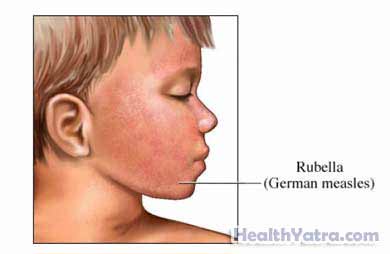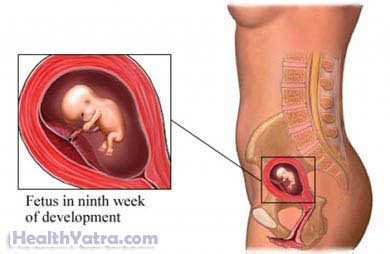Definition
Rubella is an infection caused by a virus. If a pregnant women becomes infected she can pass the infection to the unborn baby. This infection can lead to severe birth defects, miscarriage or stillbirth. The health problems due to the infection are called congenital rubella syndrome.
Causes
Congenital rubella syndrome is caused by an infection of the rubella virus. The virus first infects the mother. It then passes to the baby during pregnancy. The virus interrupts the development of the baby.
Risk Factors
There is a vaccination for rubella. If the mother has not had this vaccination, the baby has an increased risk of infection.
The infection is most dangerous to the baby in the first trimester of pregnancy.
Symptoms
Symptoms can vary depending on the timing of the infection. Some problems caused by congenital rubella include:
- Slowing of fetal growth
- Small head circumference
- Hearing loss
- Inflammation of the retina
- Dental problems and other bone problems
- Glaucoma
- Cataract
- Abnormal smallness of one or both eyes
- Inflammation of the uvea (middle layer of the eye)
- Heart defects
- Enlargement of liver and spleen, including liver damage
- Neurological abnormalities including developmental delay
- Chronic meningitis
Diagnosis
Your doctor will ask about your child’s symptoms and medical history. A physical exam will be done. Other tests may include:
- Blood tests—to look for infection with rubella virus
- Imaging tests—to look for problems in the brain
Treatment
Treatment will depend on the results of the infection. Certain eye and heart defects may be treated with surgery shortly after birth. Early intervention programs may also help babies with hearing loss, vision loss, or intellectual disability. Talk with your doctor about the best treatment plans for your child.
Prevention
Rubella vaccination for the mother can prevent congenital rubella syndrome. Screening for immunity may be done at premarital, preconception, or prenatal medical exams.
Infants with congenital rubella can spread the infection. Anyone taking care of your infant should be vaccinated against rubella.


